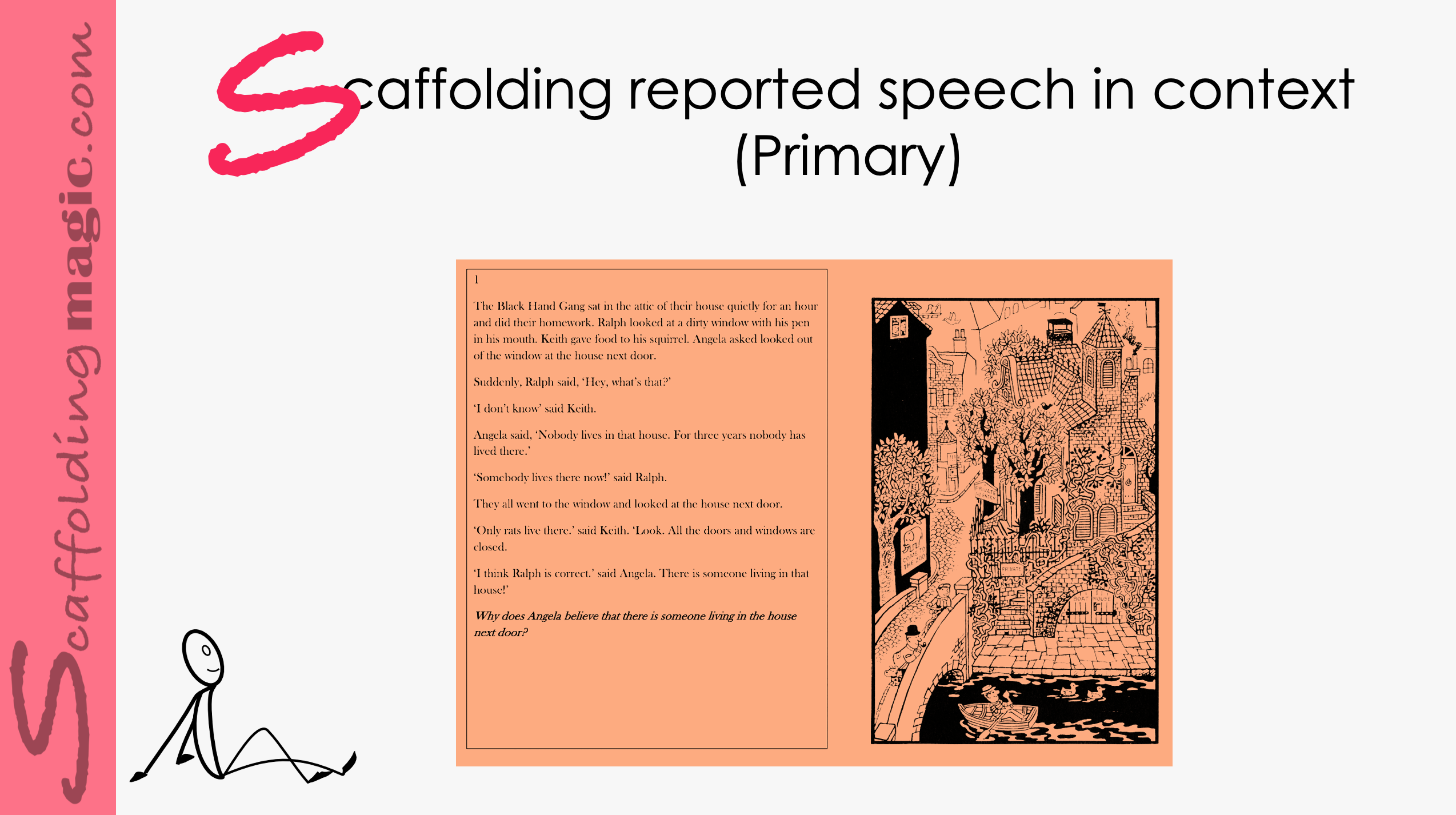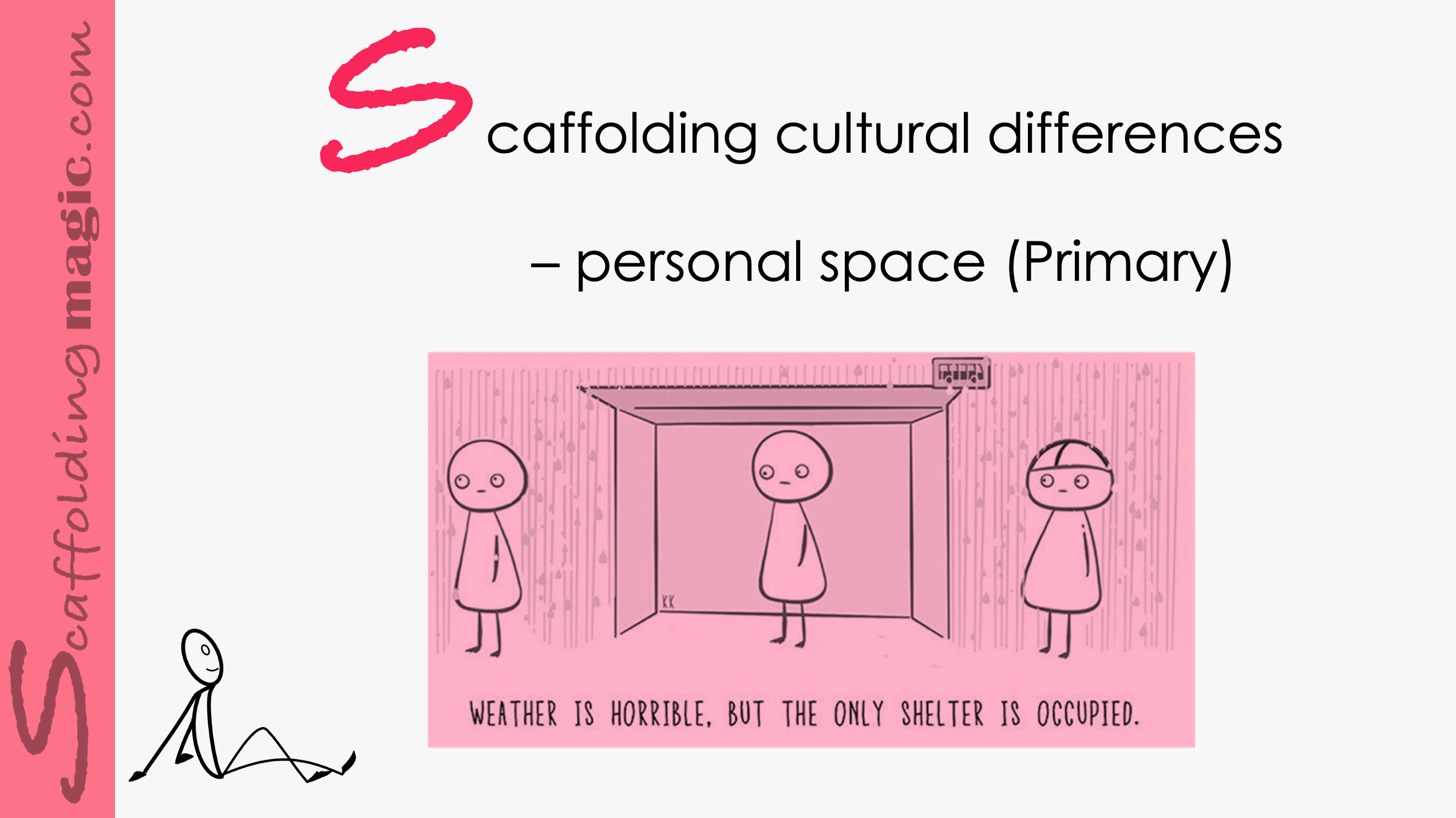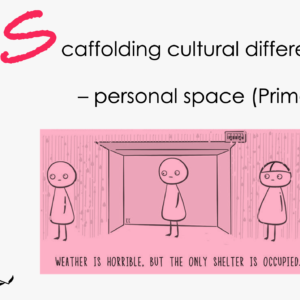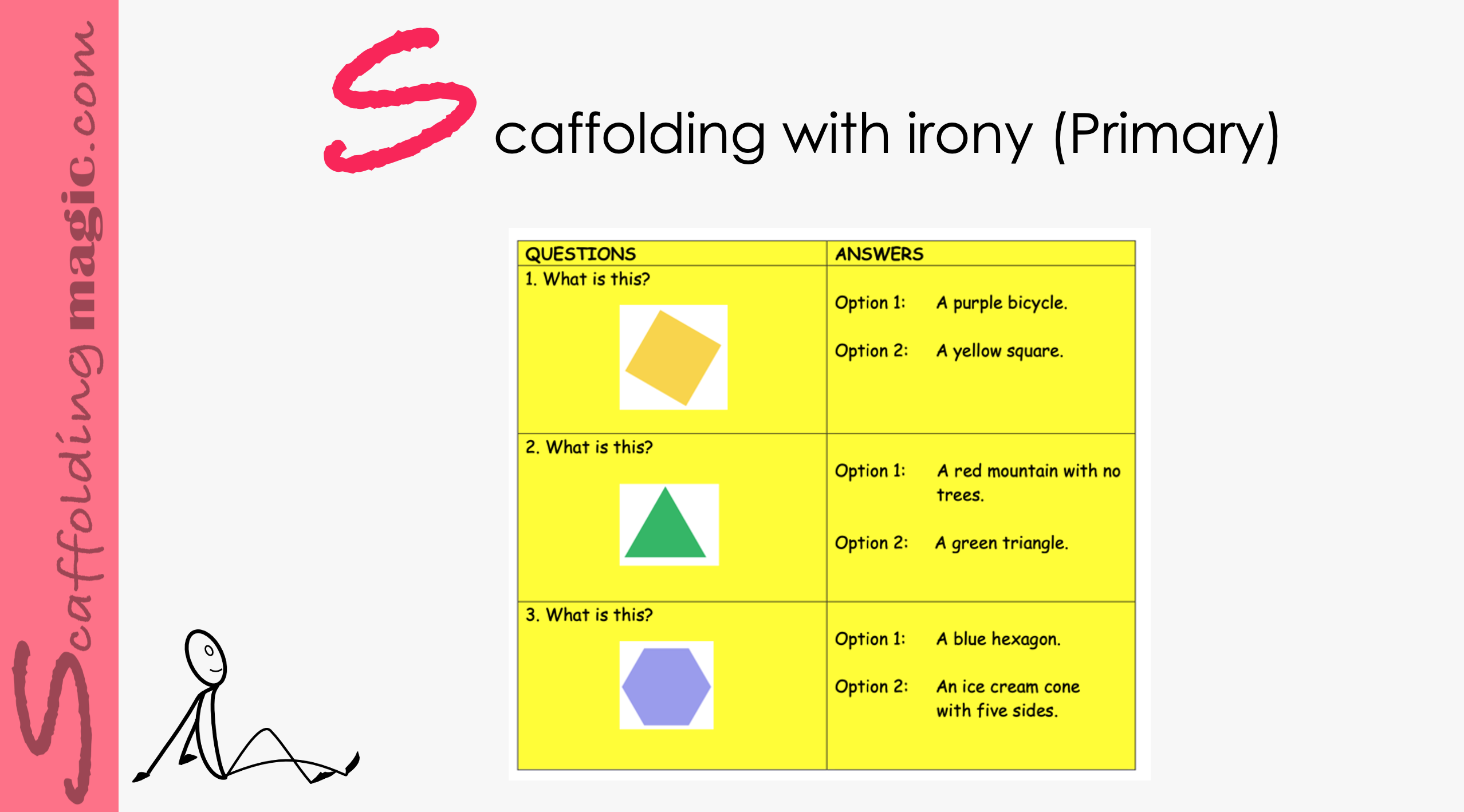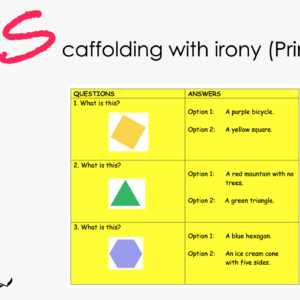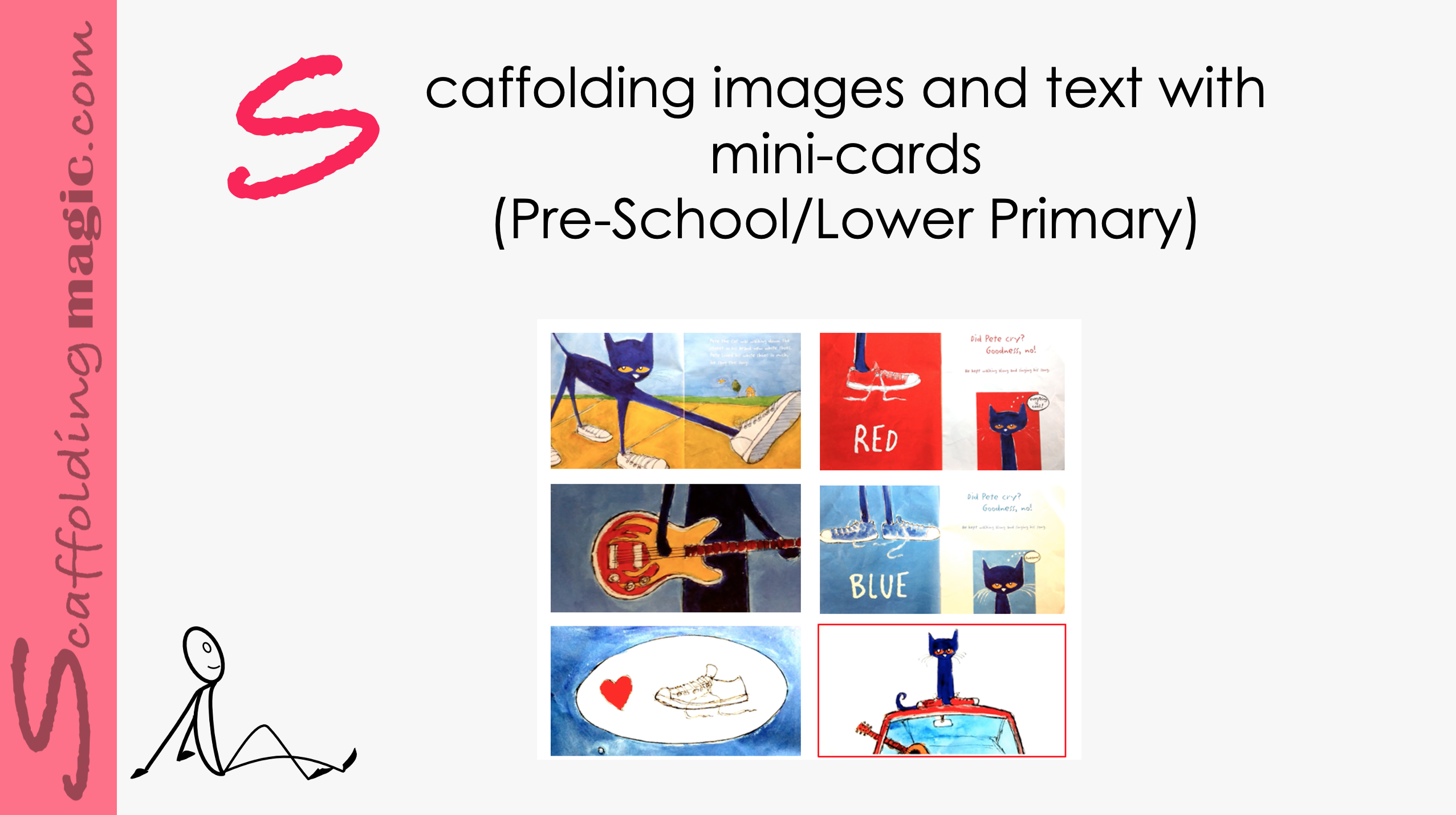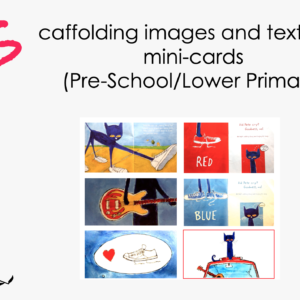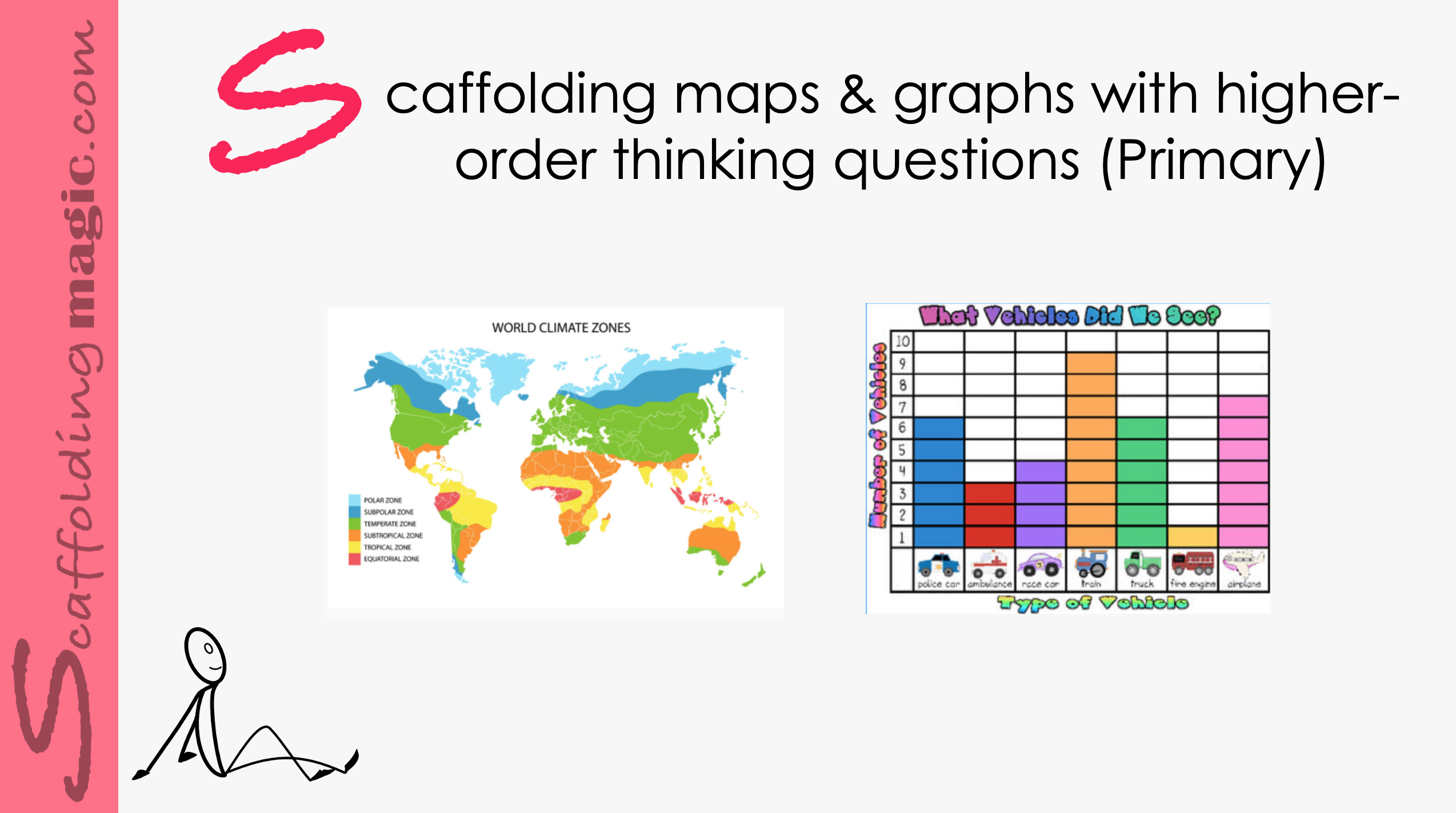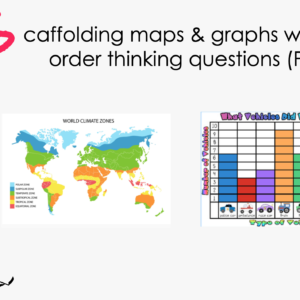Scaffolds that offer opportunities for verbal interactions compensate for this lack. They help students to strengthen, build and diversify language as well as to use skills they might not develop by themselves.
Scaffolding Reported Speech in Context (Primary)
$5.00
Scaffolds that offer opportunities for verbal interactions compensate for this lack. They help students to strengthen, build and diversify language as well as to use skills they might not develop by themselves.
Related products
-
Primary ScaffoldsQuick View
Scaffolding Cultural Differences – Personal Space (Primary)
$5.00 Add to cartRated 0 out of 5 - Quick View
-
Primary ScaffoldsQuick View
Scaffolding Images and Text with Mini-Cards (Pre-School/lower primary)
$5.00 Add to cartRated 0 out of 5 -
Primary ScaffoldsQuick View
Scaffolding Maps and Graphs with Higher-Order Level Questions (Primary)
$5.00 Add to cartRated 0 out of 5
Scaffolding Cultural Differences – Personal Space (Primary)
Cultural differences extend far beyond language, greetings, gestures, dress and beliefs. The very space we create when we meet people – or the absence of that space – is indicative of where we come from and what our understanding is of the (dis)comfort level of those we are with.
This scaffold helps us see how we can honour physical space, amongst many other differences between cultures. It includes the affective side of learning – in developing more understanding and compassionate citizens of the world as our students travel across the planet physically and/or virtually.
Scaffolding with Irony (Primary)
Adding humour to a lesson is always a recipe for success. Humour changes the dynamic of the class and helps students to see their lessons with a different frame of mind. This scaffold uses irony – the highest form of humour – to help make potentially dry material more inviting and accessible.
The use of humour is engrained in our cultural perspectives. Edward T. Hall, one of the pioneers of cultural studies for the purpose of preparing us for and appreciating the differences in peoples across the globe, elucidates the varying uses of humour in different environments. American humour, for instance, is binary and is either present or absent. In the Far East, on the other hand, one encounters a wide spectrum of subtle degrees of humour that are commonly present.*
Adding humour to a lesson is always a recipe for success. Humour changes the dynamic of the class and helps students to see their lessons with a different frame of mind. This scaffold uses irony – the highest form of humour – to help make potentially dry material more inviting and accessible.
The use of humour is engrained in our cultural perspectives. Edward T. Hall, one of the pioneers of cultural studies for the purpose of preparing us for and appreciating the differences in peoples across the globe, elucidates the varying uses of humour in different environments. American humour, for instance, is binary and is either present or absent. In the Far East, on the other hand, one encounters a wide spectrum of subtle degrees of humour that are commonly present.*
Scaffolding Images and Text with Mini-Cards (Pre-School/lower primary)
We all know by now (pretend that you do, even if you don’t!!!) that teaching critical thinking is a never-ending job. Critical thinking strategies are domain sensitive, which simply means that a strategy that works in art may not work in history, and a strategy that works in for a verbal deliberation may not work in a situation that requires physical movement, etc.
We look at all this as an opportunity to expand our practice. We can take this as an excuse to widen even further the variety of strategies we use in our classroom activities so that when our students go out into the world, they’ll be more prepared because of this little extra effort we put into our lessons.
We all know by now (pretend that you do, even if you don’t!!!) that teaching critical thinking is a never-ending job. Critical thinking strategies are domain sensitive, which simply means that a strategy that works in art may not work in history, and a strategy that works in for a verbal deliberation may not work in a situation that requires physical movement, etc.
We look at all this as an opportunity to expand our practice. We can take this as an excuse to widen even further the variety of strategies we use in our classroom activities so that when our students go out into the world, they’ll be more prepared because of this little extra effort we put into our lessons.
Scaffolding Maps and Graphs with Higher-Order Level Questions (Primary)
Higher-order level questions – those that elicit deeper thinking – help students to stretch their thinking and engage their curiosity, their reasoning ability, their creativity, and independence. These questions encourage students to open their minds, they offer opportunities to produce original thinking. A well-structured question sparks perspectives that might not have at first occurred to us; they encourage us to look at the issue from different perspectives. Higher-order level questions inspire fresh and sometimes even startling insights and ideas, they open roads for wider perspectives of the issue, and enable teachers and students to work together in constructing understanding. If we use effective questioning skills in the educational environment, we help our students to be more effective thinkers now and in the future.*
Higher-order level questions – those that elicit deeper thinking – help students to stretch their thinking and engage their curiosity, their reasoning ability, their creativity, and independence. These questions encourage students to open their minds, they offer opportunities to produce original thinking. A well-structured question sparks perspectives that might not have at first occurred to us; they encourage us to look at the issue from different perspectives. Higher-order level questions inspire fresh and sometimes even startling insights and ideas, they open roads for wider perspectives of the issue, and enable teachers and students to work together in constructing understanding. If we use effective questioning skills in the educational environment, we help our students to be more effective thinkers now and in the future.*

